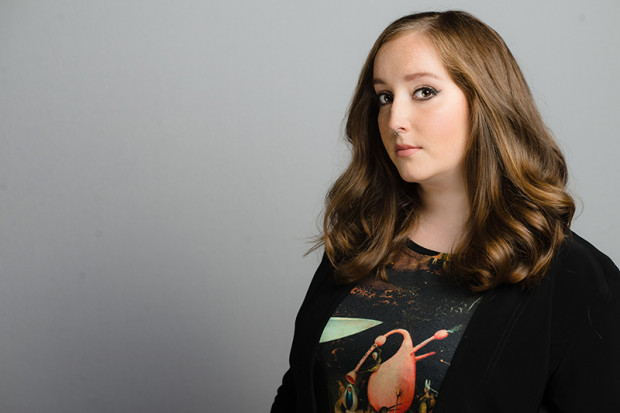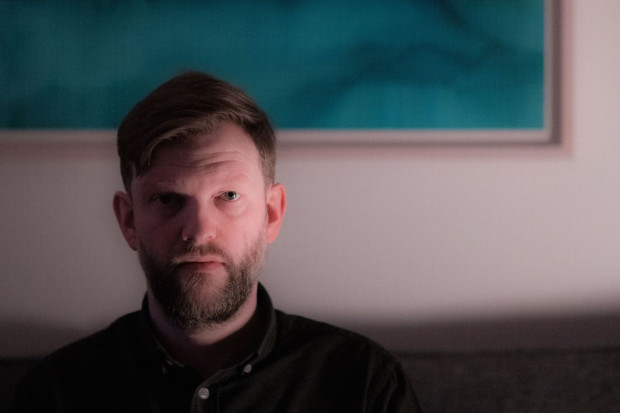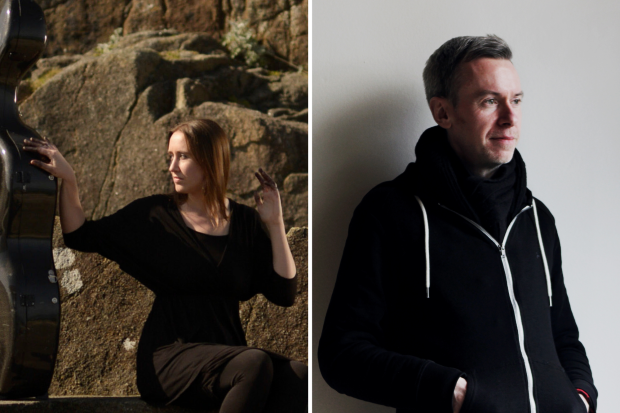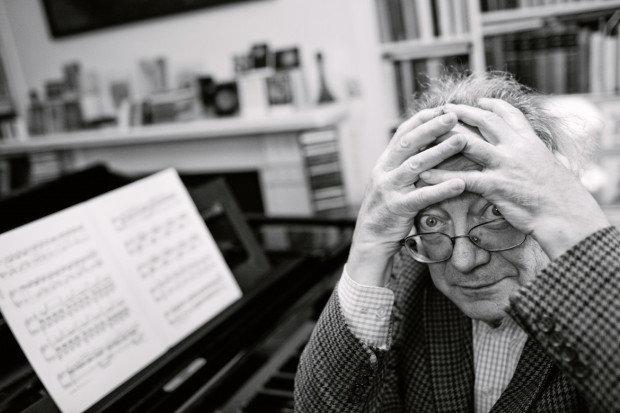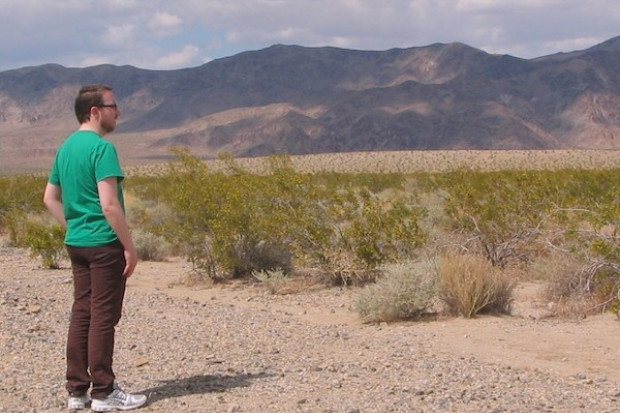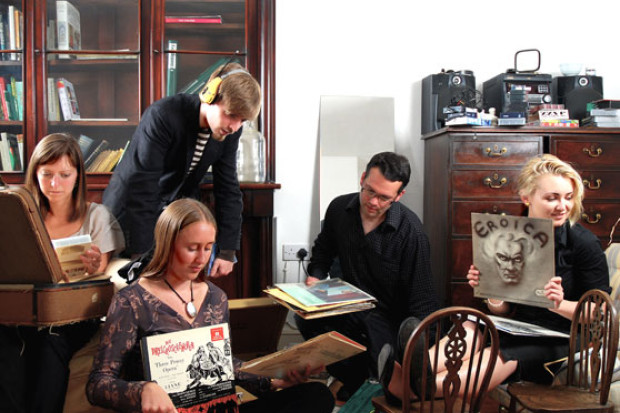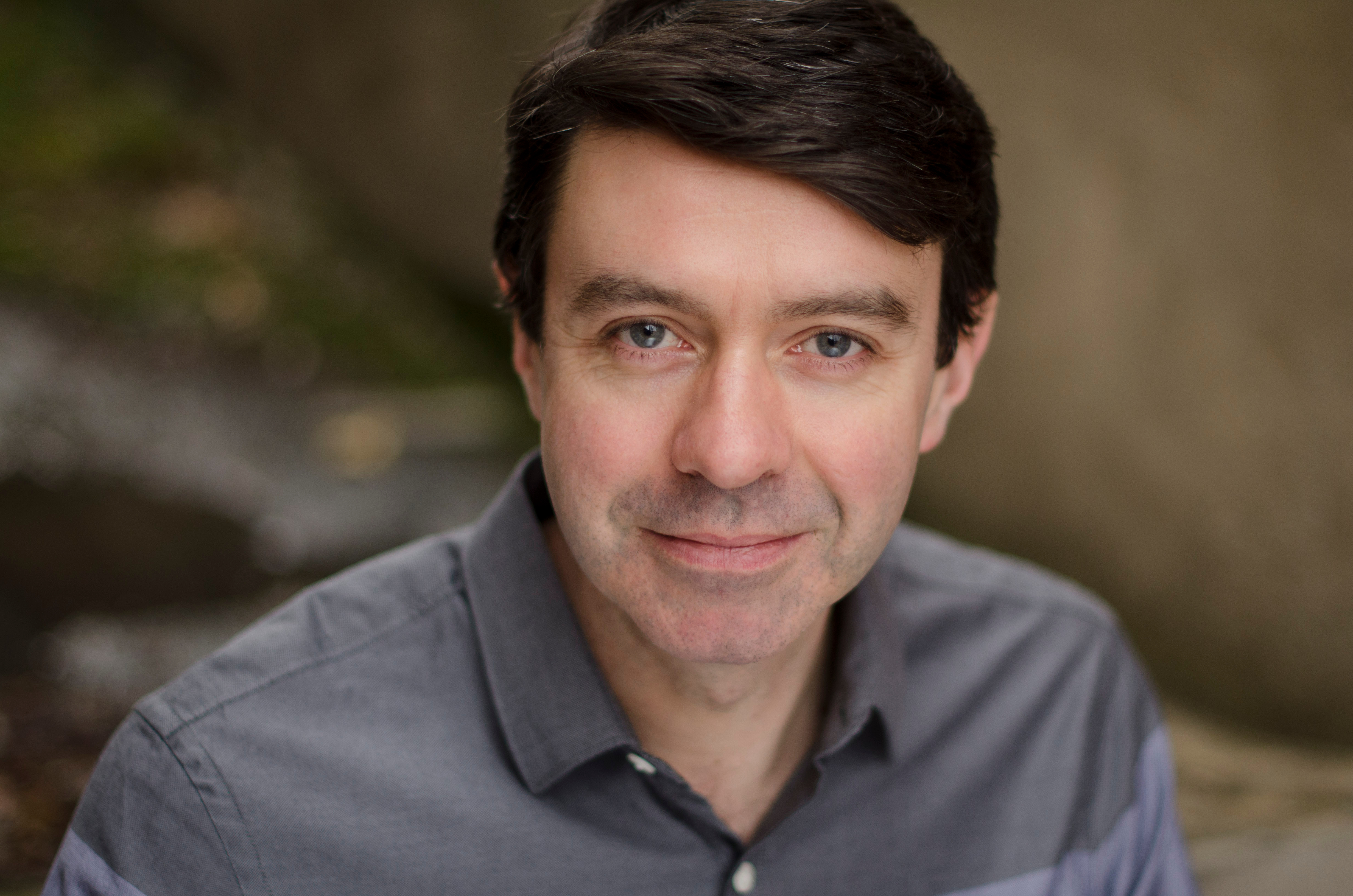
Donnacha Dennehy (Photo: Britt Olsen-Ecker)
‘It has been this burst of energy’: An Interview with Donnacha Dennehy
In 2014, Donnacha Dennehy left Ireland to become Associate Professor of Music at Princeton University in New Jersey. He had been a guest lecturer and scholar in Princeton in 2012, and then returned to Ireland, but a position opened up after the departure of composer Paul Lansky, and Dennehy went for the job. He was, up to that point, a lecturer in music in Trinity College Dublin, and headed up the new MPhil in Music and Media Technology. He had also recently ended his tenure as Artistic Director of the pioneering new music group Crash Ensemble.
In the years he was in Ireland, Dennehy’s impact on the music scene was far-reaching. For 15 years he was at the heart of Crash, bringing a new style to the performance and promotion of contemporary music, organising festivals, premiering international work, commissioning and encouraging new composers, and, in tandem, he wrote his own ground-breaking works such as Junk Box Fraud, Glamour Sleeper, Grá agus Bás and Bulb. Since 2014, he has been just as productive, premiering two operas, The Last Hotel and The Second Violinist, which will be followed this autumn with his latest dramatic work The Hunger at the Abbey. Next week, his new percussion work Broken Unison will be given its European premiere in Cork.
When the Journal of Music spoke to Dennehy, he had just attended the premiere of one of his works at the LA Philharmonic’s Noon to Midnight Festival on 1 June. Overcasting, commissioned by the orchestra and played by seventeen of its musicians, was conducted by renowned composer John Adams.
‘That day was extraordinary,’ Dennehy says. ‘It was non-stop new music, mainly from all over America. … At times, there were three concerts at the same time; it was just packed with these extraordinary ensembles, and young composers… it’s such an energetic ecosystem here.’
Living in the US, not far from New York, has been particularly inspiring for the composer, for a range of reasons:
It has been this burst of energy. I have been incredibly productive in the time that I’ve been here. That might be practical as much as anything. The way the educational system is here, they allow professors more time for their work. … And I’m not involved anymore in the day to day running of Crash Ensemble – which was a great thing, I used to love it – but of course, that consumes time.
Impatient to get things done
When Dennehy started Crash in 1997 in Dublin, with conductor/composer Andrew Synnott and clarinettist Michael Seaver, he was ‘pretty ambitious for it’ and even ‘stupidly idealistic’, but that idealism was essential: ‘I wanted to open up a whole new way of presenting music in Ireland and a whole new kind of repertoire.’
Since his teenage years, Dennehy had had a romantic idea of new music groups in New York and Amsterdam, and wanted to create something similar in Ireland. Following studies in the States and the Netherlands, he came back to Dublin, began teaching in Trinity, and founded the ensemble.
I was impatient to get things done. I also wanted an outlet for my own work. I always had a strange relationship to the traditional institutions. I wasn’t so sure I was ready to depend on them, or wanted to.
We also had this great opportunity. There were so many people in those early days who gave so much to the group as well…. It was exciting. I can’t lie. I feel happy that we did that and I feel really happy that it is still firing on all cylinders.
Crash concerts were different from the start and attracted a diverse audience to contemporary music. ‘At the early concerts,’ according to a review by Barra Ó Séaghdha in the Journal of Music in 2004, ‘there were striking numbers of young people whose CD collections would certainly range well outside the classical sphere. With the blacking out of the theatre between pieces and the musicians’ informal dress-style, the atmosphere was more gig than concert.’
Early festivals organised by Crash included Up North!, a focus on Nordic countries that included the premiere of Glamour Sleeper, and an event featuring musicians from Bang on a Can. Crash also launched the annual concert ‘Free State’ which premiered new work by young composers (including Andrew Hamilton’s Music for People Who Like Art). In 2006, Dennehy was Artistic Director of the RTÉ Living Music Festival, which invited Steve Reich for the weekend and this became a significant milestone for the burgeoning scene. In Crash’s first decade, it performed almost 80 concerts. Discussing their achievements in the Journal of Music in 2007, the composer John McLachlan wrote that Crash ‘have pushed the contemporary music culture in Ireland in a direction that it simply wasn’t going heretofore…’.
Through the night
Most recently, Crash, of which Dennehy is still an Artistic Partner, have released a recording of his opera The Last Hotel, presented a successful concert of music related to skateboarding, and, for their twentieth year, they performed twenty new commissions.
By 2012, however, Dennehy felt it was time to do something different.
I felt that it was time to give it to somebody else. And I’m thrilled with what Kate [cellist Kate Ellis, the Artistic Director since 2012] is doing with Crash. The level of what they do now is just phenomenal, how active they are. And also the breadth of things that they’re involved in. She’s opened up Crash’s aesthetic to things from the indie scene which I really don’t know about.
He feels that if he had continued directing Crash there would be a danger of him repeating himself. ‘It was time for others. For me, there was a choice there. I think also, for my music, I just needed more time to do it. I really did.’
Up until then, Dennehy had been balancing his own work with lecturing and being in charge of the ensemble. ‘I wrote almost through the night,’ he remembers. ‘I worked at a ferocious pace. After a while you need some sleep.’
There’s nowhere else
Dennehy keeps an eye on the Irish scene, as much as he can, and finds the amount of music activity extraordinary given the country’s small size and the levels of public funding available to music.
In Ireland, it’s still a shame that there isn’t the proper European level of funding for the arts and music in particular. … What Ireland is great at is making our own ensembles and collectives, and there’s a great energy that comes out of that – I really believe in that, that’s what I was doing. But then there’s nowhere else. If you want to do really big works, that’s much harder. And that’s a shame, I think.
But what would a better resourced Irish music scene look like?
There’s no way that [Ireland] can pretend it is going to have the American system looking for private donors, because that’s all deeply connected with their tax code, and what they can write off…. I would never compare to the UK because I think it’s an outlier in the European sense…. I would look at other European countries like Denmark, Sweden, Finland, Netherlands.
The trick, says the composer, is to get the right balance between the old and the new.
The downside of infrastructure is that you can have all this money going into just preserving old art. You don’t want that, and that can be a problem in many of the larger European countries. But if you can avoid that trap, and have these bigger institutions also feeling passionate about new work… then that would be a great thing.
Knife-edge climaxes
Along with The Hunger (which Dennehy calls a ‘docu-cantata’ – it features, among many components, a video interview with Noam Chomsky about the Irish famine) and Broken Unison, other recent work by him includes The Weather of it (2016) for string quartet, a co-commission for Wigmore Hall and Carnegie Hall; Tessellatum (2015) for violist Nadia Sirota and viola da gamba player Liam Byrne; and Strange Folk (2018), commissioned by Princeton.
Dennehy’s work is often characterised by knife-edge climaxes at the end of his pieces which sustain, often employing microtones and creating this incredible tension. Broken Unison has elements of this, but is he quite conscious of this element of his work?
I think it’s in me. There’s only so much you can be aware of, but I’m even struck myself when I listen to my pieces – that locking in, right on the cliff edge. I have a feeling for the long trajectory … [P]art of that long trajectory is that things build to this point, and then as you go towards the end you feel them accumulating.
Broken Unison is a virtuosic piece. It’s ‘super joyful’ from the start, says Dennehy, and in seven sections. ‘There’s a lot of canons in it and I consider them “broken unisons”.’ There’s optimism, too, but then as the players became unified towards the end it ‘darkens’. These dark endings, he says, may be intrinsic to his work.
I’m a very optimistic person, but the awful tragedy of life is that it is headed in one destination… I often think of time on two levels: I think of it as circular and rejuvenating, like the beauty of waking up on a lovely day… but there’s another rhythm that is destructive, and it’s the rhythm that affects all of us, which is towards death. I find it terrifying. I sometimes think of my writing music as a way of trying to deal with that.
Donnacha Dennehy’s Broken Unison will be performed by Sō Percussion at Cork Opera House on Tuesday 18 June as part of Cork Midsummer Festival. The programme also includes works by Vijay Iver, Suzanne Farrin, Caroline Shaw, Steve Reich, Jason Treuting and Dan Trueman. For tickets, visit www.corkoperahouse.ie.
Published on 13 June 2019
Toner Quinn is Editor of the Journal of Music. His new book, What Ireland Can Teach the World About Music, is available here. Toner will be giving a lecture exploring some of the ideas in the book on Saturday 11 May 2024 at 3pm at Farmleigh House in Dublin. For booking, visit https://bit.ly/3x2yCL8.










